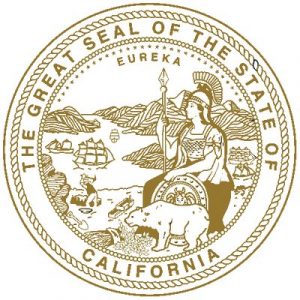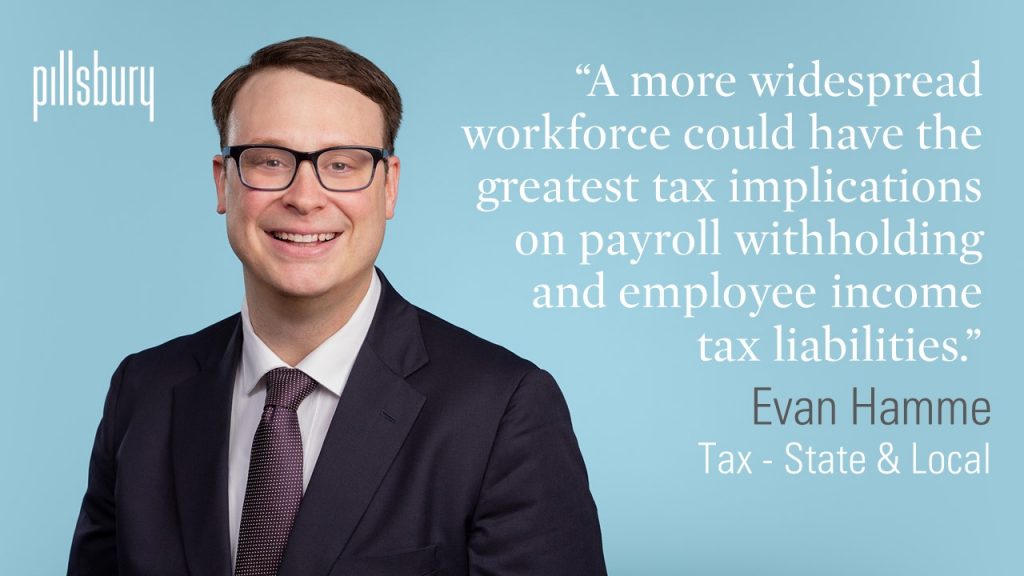Pillsbury SALT partner Jeffrey Vesely will present during WSPA’s virtual event on October 13. Continue Reading ›
Continue Reading ›
Articles Posted in Issues
COST’s 52nd Annual Meeting and Webinar
Pillsbury SALT partner Carley Roberts will present during COST’s 52nd Annual Meeting on October 19 in Las Vegas, NV.

COST’s 2021 Property Tax Workshop
Pillsbury SALT attorneys Craig Becker, Robert P. Merten III and Zachary Atkins will present during COST’s Annual Property Tax Workshop September 22 – 24.

California Lawyers Association’s Taxation Webinar
Pillsbury SALT attorney Jeff Phang will present during CLA’s taxation webinar on September 13. Jeff is partnering with Annie Rothschild (Eversheds Sutherland) to present on the topic, “Recent Developments in California Income Tax Apportionment and Sourcing Law.”
Only Simple Majority Required (Again!): California Court of Appeal Holds SF’s Proposition G Citizen Initiative Did Not Require Supermajority Voter Approval; Reconsideration Request Pending
California’s Court of Appeal again held that a special tax measure placed on the local ballot as a citizen initiative required only a simple majority, not a supermajority, vote to pass. 
Proposition G is a school parcel tax initiative that passed on San Francisco’s June 2018 ballot with 60.76% of the vote. The Proposition G school parcel tax is a special tax—in other words, the expenditure of its revenues is dedicated to a specific project or projects—and not a general tax, which revenues roll into the locality’s general fund. Here, the Proposition G school parcel tax funds are earmarked for educators’ salaries, staffing, professional development, technology, charter schools, and oversight of funding.
California Court of Appeal Says Tax for “Public Safety Services” and “Other Essential Services” Not a Special Tax
 California’s Court of Appeal held a local sales tax ordinance (Measure K) was a general tax, not a special tax, and therefore its adoption did not require a two-thirds vote (supermajority) under California’s Constitution. A tax is “special” and therefore would require a two-thirds vote, when the expenditure of its revenues is dedicated to a specific project or projects. The plaintiffs argued that Measure K was a special tax because the funds were earmarked for the funding of the county’s public safety services and essential services. The Court of Appeal disagreed, concluding tax proceeds that are deposited in a separate account for unspecified “other essential services” could be used for any and all government services that qualify as an “essential service” and are therefore not dedicated to a specific project or purpose, indicative of a general tax. Thus, the court held Measure K was valid.
California’s Court of Appeal held a local sales tax ordinance (Measure K) was a general tax, not a special tax, and therefore its adoption did not require a two-thirds vote (supermajority) under California’s Constitution. A tax is “special” and therefore would require a two-thirds vote, when the expenditure of its revenues is dedicated to a specific project or projects. The plaintiffs argued that Measure K was a special tax because the funds were earmarked for the funding of the county’s public safety services and essential services. The Court of Appeal disagreed, concluding tax proceeds that are deposited in a separate account for unspecified “other essential services” could be used for any and all government services that qualify as an “essential service” and are therefore not dedicated to a specific project or purpose, indicative of a general tax. Thus, the court held Measure K was valid.
Telework Nexus Burdens Grow As States Shed Pandemic Relief
Pillsbury Counsel Evan Hamme discussed how the rise in remote work could lead to tax compliance issues for employers with Law360. Read more here. Continue Reading ›
Continue Reading ›
2021 CalTax Foundation Webinar Series
Pillsbury SALT partner Carley Roberts will participate in the CalTax Webinar series on August 24. The theme for the webinar is “How to Navigate the Appellate Process at the OTA.”
COST’s 2021 State and Local Tax Workshop and Webinar for the Tech Industry
Pillsbury SALT partners Jeff Vesely, Annie Huang, Marc Simonetti and counsel Robert Merten III will present during COST’s 2021 SALT Workshop for the Tech Industry August 11 through 13. Continue Reading ›
Continue Reading ›
COST’s 2021 State Transaction Tax Webinar
Pillsbury SALT partner Jeffrey Vesely will present during COST’s State Transaction Tax Webinar on July 15. Continue Reading ›
Continue Reading ›
 SeeSALT Blog
SeeSALT Blog

